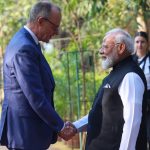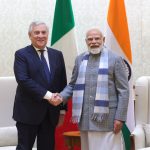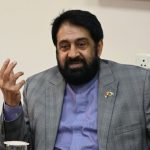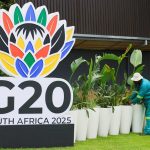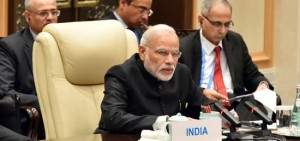 HANGZHOU (China): It’s time to move beyond empty talk and forge an action-oriented agenda for collective action to forge more efficient and effective global economic and financial architecture. This was the central thrust of Prime Minister Narendra Modi’s intervention at the ongoing G20 summit of the world’s major economies in Hangzhou, the picturesque city famed for its iconic West Lake.
HANGZHOU (China): It’s time to move beyond empty talk and forge an action-oriented agenda for collective action to forge more efficient and effective global economic and financial architecture. This was the central thrust of Prime Minister Narendra Modi’s intervention at the ongoing G20 summit of the world’s major economies in Hangzhou, the picturesque city famed for its iconic West Lake.
Xi lauds Modi
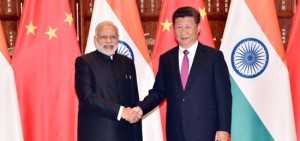 Mr Modi’s speech at the G20 summit saw a striking convergence with key thoughts expressed by President Xi Jinping at the opening of the summit on September 4, reflecting prospects of enhanced global cooperation between Asia’s second and third largest economies amid notes of dissonance on some bilateral issues. In his remarks at the summit, Mr Xi, the host of the G20 summit, lauded Mr Modi for his leadership of the Indian economy, and singled out India’s energy policy for special praise.
Mr Modi’s speech at the G20 summit saw a striking convergence with key thoughts expressed by President Xi Jinping at the opening of the summit on September 4, reflecting prospects of enhanced global cooperation between Asia’s second and third largest economies amid notes of dissonance on some bilateral issues. In his remarks at the summit, Mr Xi, the host of the G20 summit, lauded Mr Modi for his leadership of the Indian economy, and singled out India’s energy policy for special praise.
Building upon central tropes of his intervention on the Day 1 of the G20 summit the previous day, Mr Modi underscored the imperative need for “more efficient and effective global economic and financial governance,” and reiterated zero tolerance for corruption and black money, the twin issues which are also central to his domestic agenda for economic rejuvenation of India.
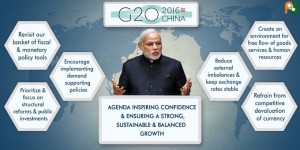 “G20 needs an action-oriented agenda of collective, coordinated and targeted action,” Mr Modi had told the world leaders on September 4. “To benefit all, G20 would need to act decisively. This will also require strong network of partnerships,” he said.
“G20 needs an action-oriented agenda of collective, coordinated and targeted action,” Mr Modi had told the world leaders on September 4. “To benefit all, G20 would need to act decisively. This will also require strong network of partnerships,” he said.
Highlighting India’s growth aspirations, Mr Modi spoke about steps being taken by the Indian government to improve financial system, boost domestic production, enhance infrastructure investment and create a pool of human capital.
“We meet at a time when the global situation faces complex political and economic challenges,” said Mr Modi while calling for a multi-faceted agenda to revive global growth.
Focus on Asia
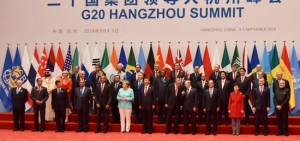 The emphasis on action, to move the G20 from the declaratory phase to fast-tracking implementation, was also the central theme of the Chinese president’s speech at the summit. President Xi exhorted the leaders of the world’s major economies to shun empty talk and “deliver real action” and lift up global economic growth.
The emphasis on action, to move the G20 from the declaratory phase to fast-tracking implementation, was also the central theme of the Chinese president’s speech at the summit. President Xi exhorted the leaders of the world’s major economies to shun empty talk and “deliver real action” and lift up global economic growth.
With the global economic growth stagnating, the focus at the G20 summit in Hangzhou is on the two large Asian economies, India and China, which re still growing healthily and have emerged as beacons of hope in crisis-ridden times. China’s new normal growth rate of 6.7-7 per cent is a dip from previous years, but given the size of the Chinese economy, it’s still impressive. Energised by a spate of second generation economic reforms, including lifting FDI caps in key sectors like defence and insurance, India has become the world’s fastest growing economy, clocking over 7 per cent growth rate.
Author Profile

- Manish Chand is Founder and Editor-in-Chief of India Writes Network (www.indiawrites.org) and India and World, a pioneering magazine focused on international affairs. He is CEO, Centre for Global India Insights, an India-based think tank focused on global affairs.
Latest entries
 India and the WorldJanuary 13, 2026India, Germany raise the bar for defence, economic ties
India and the WorldJanuary 13, 2026India, Germany raise the bar for defence, economic ties India and the WorldDecember 12, 2025India-Italy bonding: Tajani’s visit raises the bar for business, maritime ties
India and the WorldDecember 12, 2025India-Italy bonding: Tajani’s visit raises the bar for business, maritime ties In ConversationNovember 26, 2025G20 is a Force for global Good
In ConversationNovember 26, 2025G20 is a Force for global Good articlesNovember 26, 2025Rescuing G20 from North-South divide: Ubuntu Moment
articlesNovember 26, 2025Rescuing G20 from North-South divide: Ubuntu Moment

